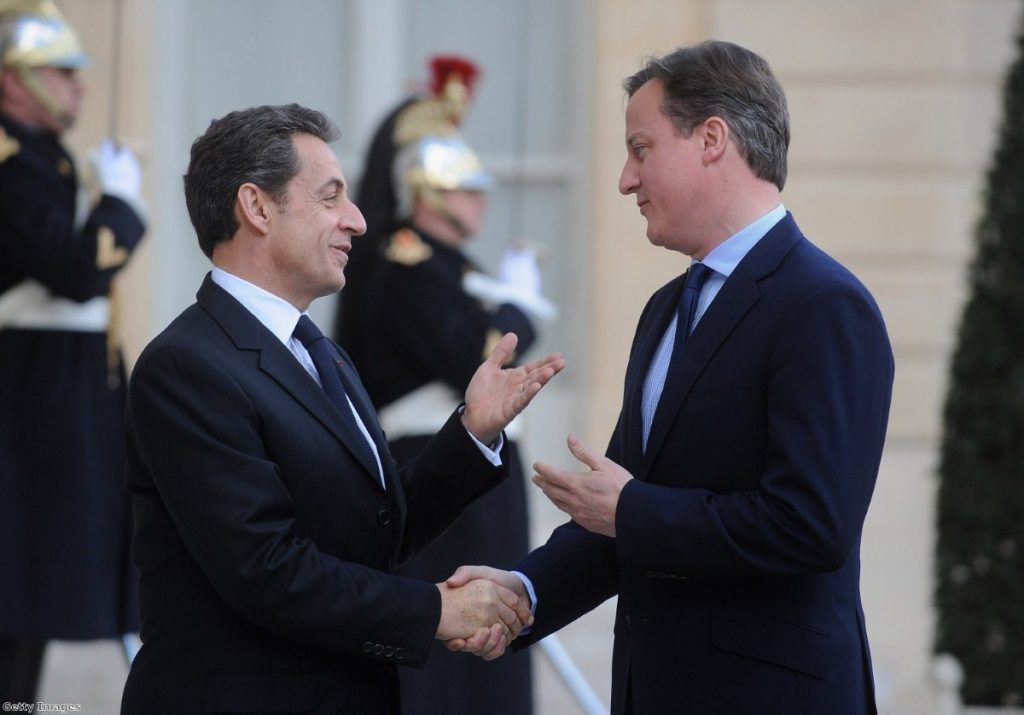The Conservative curse: Cameron faces the Europe test
By Ian Dunt Follow @IanDunt
David Cameron is in an almost impossible position ahead of Thursday's EU summit, as the curse of Europe comes back to haunt another Conservative prime minister.
Following yesterday's announcement of treaty change and a closer fiscal union by Angela Merkel and Nicolas Sarkozy, the press, Tory backbenchers and even his own Cabinet ministers have adopted a critical attitude towards Mr Cameron.
The French president and German chancellor said the ten non-eurozone EU countries, including the UK would be invited to join the deal but that the process would continue without them if they chose not to.
Issue brief: The eurozone crisis
Many analysts interpreted the comment as a direct salvo at Mr Cameron, who had voiced an intention to demand concessions as a price for British agreement.
With no voice at the negotiations and no ability to extract concessions for his support, Mr Cameron has hardly any influence at all in the process, despite coming under serious pressure from a range of forces at home.
Three of the most widely-read newspapers in the country attacked the prime minister today for his position on Europe, with the Telegraph, the Daily Mail and the Sun criticising Mr Cameron for ruling out a referendum.
The Daily Mail accused the prime minister of treating the British people "like congenital idiots" while the Telegraph said he had thrown away "the strongest card in his hand before the game has even started".
Tory backbenchers – newly confident from their 81-strong Commons rebellion on Europe this October – began to pile the pressure on as well.
"The only way that we can get the deal that is in the national interest is if ministers and mandarins know that the result has to be put to the people in a referendum," Douglas Carswell told the BBC's Today programme this morning.
Meanwhile, former Tory leader Iain Duncan Smith was reaping the dividends of his tough eurosceptic stance this weekend, with a poll showing Conservative members valued him above any other member of Cabinet, on a massive approval rating of 92%.
The work and pensions secretary's popularity stems from a Sky interview he gave this weekend saying any "substantial" treaty change in Europe should trigger a referendum in the UK.
That clashes with the government position, which is based on expatriation of powers from Westminster – a requirement which would not be fulfilled by the current negotiations.
"On the referendum, our approach is very simple. We have legislated now so it is impossible for a British government to pass power from Britain to Brussels without asking the British people in a referendum first," Mr Cameron said.
"As prime minister, I am not intending to pass any powers from Britain to Brussels so I don't think the issue will arise."
The comment was seen as a rebuke to Mr Duncan Smith. The reaction of the Tory rank-and-file will have discomforted Downing Street.
AS Europe rises to the top of the political agenbda, Mr Cameron is being asked to perform a tenuous balancing act.
Despite being eurosceptic himself, he cannot be too radical on the issue or he will alienate his pro-European Liberal Democrat coalition partners.
Just this morning, business secretary Vince Cable hit out at the attitudes of some Conservatives when he noted there was "a lot of schadenfreude around".
But if Mr Cameron refuses to throw eurosceptic Tories some red meat, he weakens his own position in the party.





-01.png)